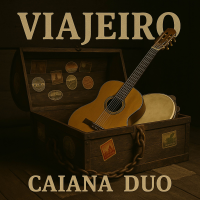Home » Jazz Articles » Interview » John Geggie: Unexpected Conversations
John Geggie: Unexpected Conversations

David Mott
saxophone, baritoneMost important, however, is his Geggie Concert Series, an annual run of shows at the National Arts Centre's club-like Fourth Stage, where he invites artists from around the world to perform in new groupings that often lead to further collaboration.

Marilyn Crispell
pianob.1947

Myra Melford
pianob.1957

Craig Taborn
pianob.1970

George Colligan
multi-instrumentalistb.1969

Bill Carrothers
pianob.1964

Gary Versace
piano
Edward Simon
pianob.1969
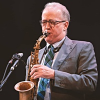
Ted Nash
saxophoneb.1960

Donny McCaslin
saxophone, tenorb.1966

Mike Murley
saxophone, tenor
Quinsin Nachoff
saxophoneb.1973

Paul Meyers
guitar
Vic Juris
guitar1953 - 2019

Cuong Vu
trumpetb.1969

Nick Fraser
drumsb.1976

Jon Christensen
drums1943 - 2020
And yet, as he approaches fifty, Geggie has never released an album under his own name...until now. But rather than releasing a single album, in 2009 Geggie released two long overdue albums—Geggie Project (Ambiances Magn©”tiques), a largely introspective and free-flowing trio disc with pianist Marilyn Crispell and drummer Nick Fraser; and Across the Sky (Plunge Records), a more mainstream-focused disc with, again, Fraser, but this time a quartet date featuring Toronto pianist Nancy Walker and American saxophonist

Donny McCaslin
saxophone, tenorb.1966

Dave Douglas
trumpetb.1963

Maria Schneider
composer / conductor
David Binney
saxophone, altob.1961
Humble and self-effacing, Geggie's easygoing demeanor has, in addition to his inestimable skills as a writer and performer in a wide variety of contexts, contributed in no small part to his growing success and reputation. He may be the sole composer of the preconceived music on both albums, and the de facto leader of both projects, but that's not how Geggie views things. "When I talk to people," Geggie explains, "I ask 'Would you like to come and play some music with me,' and it's not about me. It's just, 'I'll be playing bass.' It's not just about me and my compositions and my vision, it's about the collective, and I think what people appreciate is that aspect—that it's going to be a collective process and we're all going to be contributing to it.'"
Geggie grew up in Wakefield, Canada, across the river from Ottawa, in the province of Quebec. "I grew up with music in the home," the bassist recalls. "My parents were really into music, with lots of records, lots of classical music, lots of jazz. My dad had a friend who had a whole bunch of 78s, so dad would tape them—he had a reel-to-reel tape recorder—old

Duke Ellington
piano1899 - 1974

Count Basie
piano1904 - 1984

Jimmie Lunceford
composer / conductor1902 - 1947
Beginnings
"I started off playing piano when I was six years old," Geggie continues, "and learned from the local church organist. Then I played trumpet, and I was really bad at that, and trombone—and I was equally bad at that. When I was in high school, being a really bad trumpet player, I was listening to
Maynard Ferguson
trumpet1928 - 2006

Clifford Brown
trumpetb.1930

Art Farmer
flugelhorn1928 - 1999

Chet Baker
trumpet and vocals1929 - 1988

Ron Carter
bassb.1937

Bob James
pianob.1939
Geggie came to the bass relatively late, in his late teens. That may not have been all that unusual, but the fact that he started on double-bass rather than electric, certainly was, for someone growing up in the 1970s. "I started playing classical bass as well as jazz," says Geggie. "I'd always been interested in both so that continued on. I'd had some problems playing brass instruments and, as a result, there was an acknowledgement that I was musical, that I had the aptitude, but I needed to play something that wasn't a brass instrument. The sound of a low instrument was interesting to me. I didn't start on electric, I actually came to electric after, which is contrary to what most people do; most people start on electric and move to acoustic. Later, I had my own challenges playing electric bass, coming from double-bass.
Geggie's post-secondary school studies may have been geared towards his classical interests, but he soon found himself increasingly immersed in the jazz sphere. "I studied here in Ottawa, did a Bachelors Degree. I studied jazz with, and was mentored by Roddy Elias and Dave Hildinger and others, and there was a pretty thriving scene here in the '70s and '80s. Then I went off to Indiana State University for a Masters Degree. The goal was to just be doing classical music, but someone said 'You should audition for the jazz band. I got into the number two band, and it was a really great experience for me, because in Indiana, there's a great history of jazz players—Peter Erskine, a whole bunch of people. My contemporaries were people like

Robert Hurst
bass, acousticb.1964

Jim Beard
piano1960 - 2024

Scott Wendholt
trumpetb.1965

David Bixler
saxophoneb.1964
"So it was a really fine group of people," Geggie continues. "It was challenging, being exposed to the whole hard bebop tradition, which is something I wouldn't have had, so the whole Blue Note tradition was a good thing for me. I really sucked it up, and I was playing a lot, with lots of people. Stuff in the school, sessions—something which I miss, because I don't seem to do it so much now. The people I was playing with, we'd get together all the time to work on things. Playing in smaller groups, taking jazz courses with

David Baker
trombone1931 - 2016
The bassist returned to Ottawa when his visa ran out. At that time, most Ottawa musicians who wanted to go further had to relocate away from Canada's capital, but things didn't work out that way for Geggie. "I came back to Ottawa, mid-'80s, with the goal of leaving," says Geggie. "I came back because my visa ran out, and I was thinking I was going to be going somewhere else—that I'd get a job in an orchestra and do things like that—but I ended up staying in town because of the work—playing with the orchestra here and, well, just playing. If I were to put in a good word for myself, I would say that I'm tenacious about things and I stick my head down, dig in and make things work. I decided to stay here because I was making a living, but perhaps in the back of my mind I was still thinking I might leave. Then in early-'90s, I started playing in Chelsea Bridge."
Chelsea Bridge and Studying with Gary Peacock
A local group that ultimately garnered something of an international reputation, Chelsea Bridge as an oddly configured jazz group, also featuring vocalist Tena Palmer, saxophonist Rob Frayne and drummer Jean Martin. "I learned so much from being in that group," Geggie says, "because it was a group where there wasn't a chord player—there was Tena on soprano voice, Rob on tenor saxophone, Jean on drums and me on bass. I'd been gigging with Jean, and Rob had moved to this area because his wife had a job here, and so he was looking to play with people. We started playing together, and Rob knew Tena, who was living in Montreal, so he proposed that we start a group. It was a really good learning experience for me; we did a lot of touring and a lot of recording. Again, I see it all as a learning process. We won Le Prix DuMaurier at the Montreal Jazz Festival in 1993, for best Canadian band." The group toured abroad, and over the course of the next few years, released a number of records for the Unity label, including Tatamagouche...Next Exit (1994) and Double Feature (1995). At the same time, Geggie began to work with
D.D. Jackson
pianob.1967

David Murray
saxophone, tenorb.1955
He may have been working steadily, but Geggie was always looking for ways to grow and improve. Thankfully, the Canada Council for the Arts—a federal organization created to support and nurture the arts—was in full swing by that time, providing performing, touring and educational grants. "I was able to get Canada Council grants to study with people, and the first person I thought of was

Gary Peacock
bass, acoustic1935 - 2020

Keith Jarrett
pianob.1945
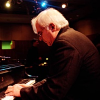
Paul Bley
piano1932 - 2016

Albert Ayler
saxophone, tenor1936 - 1970

Bill Evans
piano1929 - 1980

Miles Davis
trumpet1926 - 1991

Marc Copland
pianob.1948
"I've always been impressed by his vocabulary and how he expresses himself," Geggie continues. He's a very emotional, very expressive player, and I just liked the way he played things on the bass. He doesn't sound so much like a bassist, just someone playing a solo on an instrument, and I just thought I might like to study with him. I was going to see him initially because of the whole standards approach and things like that, but I learned so much more from him. He gave me lots of things to think about, lots of exercises to work on, and he was the first person to really challenge me in terms of 'Well, if you want to play improvised music you have to make certain decisions in your life, you have to be willing to make certain sacrifices and dedicate yourself to finding your own sound.'
"We've kept in contact," Geggie continues. "It was great; I need to be pushed and he really did that to me. Later on, thanks to the Canada Council—a great thing here in Canada, hopefully it doesn't get cut more [there have been cuts to CCA's budget in recent years]—I was able to get funding to study with [bassists]

Anders Jormin
bass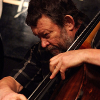
Palle Danielsson
bass, acoustic1946 - 2024

Jan Garbarek
saxophoneb.1947

Art Lande
piano
Gary Burton
vibraphoneb.1943

Steve Swallow
bassb.1940

John Abercrombie
guitar1944 - 2017

George Mraz
bass1944 - 2021

Richie Beirach
pianob.1947

Dave Liebman
saxophoneb.1946

Art Ensemble Of Chicago
band / ensemble / orchestraEnter the Swedes
"So I got into checking the Scandinavian players,' Geggie continues."I'd heard Anders playing with
Bobo Stenson
pianob.1944
Jormin's reputation as a bassist who truly makes his instrument sing is supported by his own work as a leader, but also in his work with Stenson and

Charles Lloyd
saxophoneb.1938

Michel Petrucciani
piano1962 - 1999

Eliot Zigmund
drumsb.1945
"Anders is younger," Geggie continues, "and so he would not have been as influenced by this earlier music. All of those [European] players have played with expat Americans in Europe, but I feel as though the Keith Jarrett European Quartet is an iconic group, with so many remarkable recordings, like Nude Ants (ECM, ECM, 1980), from the Village Vanguard. Anders is a remarkable bassist, and he's very much a teacher, with lots of ideas; he's thought about things and he has tremendous breadth, including playing standards with older style American jazz players, with his very lyrical approach. It is a very singing approach, and those solo recordings he did—Alone (Dragon, 1991) and Xeiyi (ECM, 2001)—I remember the first time hearing them, I thought it was just astonishing to hear the bass played like that; it's just so beautiful.
"It was also great to hear the use of hymns as a point of departure," Geggie concludes. "I'm sure it's not the first time it's been done, but it was the first time I'd heard it. And Anders' brother, Christian, is a drummer and pianist, and when I was in Sweden I remember hearing a concert that he did with his trio, where a lot of the material was folks songs, transcriptions of Scandinavian classical musicians like Grieg, or hymns. It's great to hear that sort of thing—they're still improvising in a lyrical way but it's not based on the jazz standards—the Great American Songbook—as a point of departure. I remember, when I was playing with [drummer]

Jon Christensen
drums1943 - 2020
In recent years, in addition to running his Geggie Concert Series, his work with Jazzworks, and the whatever gigs come his way, Geggie is a part-time professor at the New York State University (SUNY) in Potsdam, New York, a relatively short drive south from Ottawa. With so many artists living in the upstate New York area, there's plenty of opportunity for the bassist to continue occasional studies with other jazz artists, like

FLY
band / ensemble / orchestra
Wilbur Ware
bass, acoustic1923 - 1979

Oscar Pettiford
bass1922 - 1960

Paul Chambers
bass, acoustic1935 - 1969

Miroslav Vitous
bassb.1947

Seamus Blake
saxophoneb.1970

Larry Goldings
organ, Hammond B3b.1968

Paul Motian
drums1931 - 2011

Charlie Haden
bass, acoustic1937 - 2014
"Still," Geggie continues, "he has an incredible depth to his playing; he is so able to play the bass, and he knows the tradition and decides to play in a certain way. He doesn't seem to have any limits. It's a source of inspiration for me; I think there are so many bassists who are like that; you can talk to players who go down a certain road, but are also very aware of the tradition."
As Geggie's own playing has evolved over the years, so too has his perspective, and the questions that he's looking to answer through a combination of studying and, in many cases, playing. For a local bassist to have amassed such a large r©”sum©” of collaborations is nothing short of remarkable. "I'm a better bassist now," Geggie asserts. "There's no question that one gets better, and one's overall experience contributes immensely. I was less evolved as a player when I was studying with Gary, and what I'm looking for now, as I go along, is what makes that person tick? Why are they playing what they're playing? What is their concept of sound, sound production, tone production or time? There's the elusive question: 'How do you know what to play with certain people? How do you know what to do?'
"In theory, speaking just about bassists for now , one can be playing with lots of people a lot of the time in many different contexts if one can play in tune, play in time, know some different tunes, and be flexible," says Geggie. "We are influenced by a whole history of different bass styles; there are a lot of bassists who are thinking about the jazz tradition, but who also have knowledge of R&B and Motown, or funk, or folk music. The bass' role is malleable, but there are constants as well. For me, it's the eternal question of how do you know what to play in a particular situation or what inspires you to do certain things in certain situations? That's what I'm interested in finding out—what those players do. There are so many bassists that I wish I'd taken a lesson with, just for the inspiration factor, and it was interesting with Larry. He was showing me things that he'd learned from Ron Carter, so it's interesting the way things are passed along. It's not about owning the instrument, or information, or knowledge. I love the fact that it's about knowing things, absorbing things and being willing to pass them along and share them, which is of interest to me as I do a fair bit of teaching as well.
"As you go through life, you learn different things from different people," Geggie concludes. "You could have a conversation with some really famous person ten years ago, and think, 'Gee, I wish I'd asked him such and such a question,' because I'm so much more aware of what they are doing now than I was then. It's all a life learning process."
Geggie Project and Across the Sky
Geggie's two 2009 releases, Geggie Project and Across the Sky, may appear to be very different on the surface—and they are, one being a more mainstream effort, the other an album that, in many ways could fit within the ECM aesthetic. Many of the songs will be familiar to those who attend his Geggie Concert Series, notably the gorgeous ballad "Across the Sky." As compelling as Geggie's compositions are, he's not a prolific writer. "I don't write a great deal of music," Geggie says, "it takes me a long time to write music; I do a lot of tinkering with things and I find it interesting that something that begins as a tinker turns into something bigger—it takes on a life of its own, while being simply a framework to go farther, in the hands of the right groups of people. I'm always fascinated at how someone else interprets my music, as I'm absolutely fascinated in working with other peoples' music."One of the things I love about the [Geggie Concert series," continues Geggie, "is the fact that I get the chance to get into some of the music, say, of Cuong Vu or George Colligan, or of Donny [McCaslin] or Vic Juris, or any of the number of great people I've had the great opportunity to play with in the series., because you get to know their music—Seamus Blake,

Ted Nash
saxophoneb.1960
While the song list on each of Geggie's two recordings are largely different, there is a pair of tunes that can be found on both—the rubato tone poem, "Across the Sky" and the equally lyrical "Or Not." And it's the difference in the performances of those two tunes that speaks the most about Geggie's approach to leading a band. "When it came to choosing tunes for the two records, I had a body of tunes that I wanted to bring to the groups and I was interested to see what happened in different contexts, because there's no question that a trio with Nick [Fraser] and Marilyn will be inherently different than a quartet with Nick and Donny [McCaslin] and Nancy [Walker], But I had complete faith that they would bring their own things to the table, and that the pieces would not suffer or, in any way, be diminished by having more people play them. Even with the same people, you play the same piece over and over again and it will be similar but, at the same time, different. It's a conversation, and there will be commonalties and differences. With both recordings, I feel very grateful that the musicians I'm playing with were always very open to making suggestions and taking suggestions; they're not there just to do what they're told, they have a stake in what's going on. I really appreciate that they made suggestions in terms of arrangements, things like that, understanding that I'm coming to the table with a certain idea of what I'd like to do with a particular tune.
"It's a challenge," Geggie continues, "because to a certain extent I have to let go; this is my tune, and maybe I like to hear it a certain way, but as soon as I trust the people I'm with, and as soon as the lines of respect and communication are strong, then I'm fine with someone saying, 'Let's do this' or "Let's go down that avenue for a second.'"
Another characteristic that links the two recordings is the use of free improvisations. In the case of Across the Sky, they take the form of miniatures, some as brief as fifty seconds and none cracking the three minute mark; with Geggie Project they are still largely brief engagements, but in a couple of cases do extend longer. With its closing track, "Bouclier Canadien" just over the five-minute mark. "Some of the improvised segments took longer to develop," says Geggie, "and so listening back with Ross Murray , who was mixing and engineering, we came to a pretty easy decision that, for example, a piece really seemed to start here as opposed to 49 seconds earlier. I think it's just a vehicle for different kinds of communication. There were some suggestions being made—it wasn't a matter of me directing the whole thing. For both recordings, the musical content wasn't completely controlled or directed by myself; it was a group effort.
"The desire for the little improvisations was to have short, concise moods or impressions," Geggie continues. "At some stage—and with Across the Sky in particular—it was Nick who arbitrarily suggested, say, a duo between him and Donny; and then I would do a duo with Donny. There would be certain parameters—not to control things per se, but to set context. I keep thinking of them as conversations. If you're in a group of people you trust, you can have a conversation about anything, and anybody can start a thread of a conversation and it can go in any direction; there's no rules, no restrictions on where it can go, and a particular topic can be explored for a long period of time or it be just be a short little thing to be discussed before moving on to something else.
"The last piece on Geggie Project, "Bouclier Canadien" (Canadian Shield), is one of the longer improvs, and there's a crescendo that builds and builds and builds," Geggie concludes. "What I find fascinating is the collective sense of patience and trust to be able to take the time to make the build and not feel as though you have to go too far, too soon. I think it depends on the players and the mood and the energy. There are times when we were working on a piece of music, and we got a version that was good or 'the one,' and people were collectively tired and needed to put their heads somewhere else, like a sorbet between courses in a fine meal."
With the trio setting of Geggie Project, and the participation of Crispell, it's hard not to think of her recordings for ECM, including Storyteller (2004) and the particularly superb Amaryllis (2001). But, despite the overall inward-looking, soft tone of Geggie Project, those looking exclusively for the gentler, more restrained Crispell may be surprised at some of the sharper turns taken by the music. "With an ECM record, there is a producer [Manfred Eicher] who has a strong opinion as to what the sonic aesthetic will be," Geggie explains, "and he's created a really excellent venue that way. I think of a recording as a project; it can be something under a microscope, and a particular thing.
"I remember Peter Erskine talking about his ECM album Time Being (1994)," says Geggie. "The first tune is a free improv, and he explains that it was one of the first things they did that day; it was a beautiful fall morning in Oslo's Rainbow Studio, and the sun was streaming through the window. So it was the particular environment, in that particular moment, that gave way to an interpretation in that particular way. I don't think too much should be read into that, but in my own experience with Marilyn, there are things on that record that are very lyrical and very gentle, and that's what we were doing at that particular moment. But then, some of the other things are completely the other way, like "View from the Bridge," a very deliberate attempt not to be going down that same avenue. I think it's a measure of the comfort amongst the three of us; we're not really switching gears, it's all part of the same process. "
While Geggie Project was recorded in November, 2006, the trio has played since then, most recently at the Guelph Jazz Festival in the fall of 2009. "Just being able to play with Nick and Marilyn this fall was really interesting," Geggie enthuses. "If she's feeling good about the piano, or the sound, she will play in a certain way. Some people may have a certain style or aesthetic associated with them, and in the case of Marilyn, she doesn't often get the chance to play 'swingy dingy' time, or in that context—playing a solo with a more typically walking bass and drums.
"We can think of so many musicians who have abilities in a variety of areas," Geggie continues, "and yet they can play in so many different ways as a matter of choice, not because they have to. With the three of us on Geggie Project, there was enough trust to be able to play in any fashion; I chose Nick to play drums because I knew that he had a huge ability and awareness of the tradition, that and he can play in that tradition just as well as he can play in the completely out tradition. He took lessons with

Gerry Hemingway
drumsb.1955

Matt Wilson
drumsb.1964

Brian Blade
drumsb.1970

Myron Walden
saxophone, altob.1972
Music as Conversation
Geggie is loathe to pigeonhole any artist into a narrow stylistic confine, a refusal that permeates his own work. Across the Sky may be more centrist, and pianist Nancy Walker may more comfortably occupy that space, but equally, she's capable of being completely in and of the moment, creating improvisations with Geggie, Fraser and McCaslin, that are directly linked to the more expected empathic free play of Geggie Project. "Take Keith Jarrett," Geggie suggests, "he's extremely well-documented. But if someone was simply to judge him by The Melody At Night, With You (ECM, 1999), recorded when he was just recovering from CFS [Chronic Fatigue Syndrome], if they were to decide that it was all he does, they' d really be missing the point."A recording is simply a document," continues Geggie, "and unless you have people who record every concert they do—

Ken Vandermark
saxophoneb.1964
Most importantly, Geggie views playing with a group of people as social interaction, impacted by variables beyond the act of music-making. "There's a social element, and interaction involved here that should be recognized or acknowledged," Geggie says. "If you talk about just the element of travel, there are people who've played festivals, where they arrive, at three in the morning, after they've just been to Europe, they have a sound check at eleven in the morning for a concert they're doing at three in the afternoon, and then they'll be taking the five o'clock flight, the same afternoon, to get out of there and go somewhere else. One should not be putting too much on that person's plate in terms of how they might sound or what's going on ; just accept what they have to give at that time in the afternoon, when they play the concert.
"It has something to do with the idea that playing this kind of music is, indeed, a social activity; it's not just me sitting in a room practicing my licks," Geggie continues. "It's a group of people getting together to play music at a particular point in time, and next time it may well be different, depending upon what goes on. There are business concerns; in any record label situation, the period of time between a recording and its release can be quite significant. I was talking about this to Larry Grenadier the other day, and he was saying that what they are playing in

Brad Mehldau
pianob.1970
"When we [Geggie, Crispell, Fraser] played in Guelph last fall," continues Geggie, "we were on a very big stage, spread out, with a much bigger piano, and it felt different from playing at The Fourth Stage where the piano isn't as good, but we're really close together, with little in the way of sound reinforcement. The whole idea of The Fourth Stage is: no monitors, and playing together. The acoustic environment plays such an important role in how you play and how you express yourself. I remember reading an interview with Gary, where he talked about how, before the Jarrett Standards Trio went on the road for the first time, they actually did a few tests gigs, because they wanted to test out the whole idea of playing this kind of music—being from a tradition of playing in small, intimate clubs—in big theatres. Those Standards Trio concerts are in big halls, and they present certain challenges in terms of sound, amplification and intimacy—things that aren't as much of an issue if you're playing in a small club.
An Unusual Bass
Geggie uses something of an unusual instrument, a double-bass with an adjustable stop on the lowest string that allows him to drop chromatically from a low E down to a low C, when the situation calls for it. "It's actually quite common," explains Geggie. "Ron Carter has had one for years, though it's more common amongst orchestral bassists. But more and more people are doing it. Ron Carter,
Rufus Reid
bass, acousticb.1944
Ratzo B. Harris
bassb.1955
"Being chromatic, I can drop the string in half steps," Geggie continues. "If, for example, I have it at the D stop the strings, from the bottom up, would be DADG, which is a very resonant series of notes. If I have it at an E-flat, then the notes that come off an E-flat arpeggio would then be more resonant; it sets up an entirely different harmonic series. So it just provides different opportunities; it's nice to have those notes from time to time, but it doesn't have to control your approach either. " Thanks to increasing air travel restrictions, more and more bassists are resorting to collapsible instruments—or, even further, not traveling with one at all and using a bass provided by the venue. They can and do adapt, but not having their own instrument—and, in the case of Geggie's one that may not always be possible to supply—adds just one more layer of challenge and complexity that can change the performance from night to night. The reverse of that, is that Geggie is often called upon, by the Ottawa International Jazz Festival, to loan his bass to musicians coming from abroad to perform. "Listening to other people play your instrument—and how someone else approaches your instrument to get a sound—it's astonishing," Geggie continues.

Jaco Pastorius
bass, electric1951 - 1987

Billy Hart
drumsb.1940
"That's the beauty of it," Geggie concludes. "Drummers and pianists have to live with almost always playing an instrument that's not theirs, and bassists are doing it more and more because of travel restrictions. Larry [Grenadier] told me that, for his last European tour, he didn't bring a bass for the first time. He described it as an interesting sort of challenge, and for the most part everything was fine; but it was definitely a question of playing what you have right now, in the moment where you are, and making the most of it.
Record Labels and Geggie Concert Series
Geggie has been hosting the Ottawa International Jazz Festival jam sessions for all but two of the last eight years, providing a remarkable opportunity to meet and play with many of the musicians who come to town. The networking there often leads to later collaborations as part of his Geggie Concert Series, but while McCaslin has performed at the festival many times, including two memorable shows with the Maria Schneider Orchestra, Geggie's first encounter dates even further back. "I first heard Donny In Ottawa [in the 1990s] with Lan Xang, and he was a really lovely person," Geggie explains. "I don't know how I got the courage to ask him to play with me. It was one of The Fourth Stage shows, with Jim Doxas [in the spring of 2005]. We played Toronto, did a CBC [Canadian Broadcasting Corporation radio] thing, then Ottawa and Kingston. We did a number of things in one shot; it felt really good, and he was very open to playing. I've listened o him in the context of so many of his own projects, and his ability to play in different styles and combinations is just remarkable. He's so open to playing, and he's so completely in the moment, making suggestions, making comments, interacting with people...it's just so easy."There's also the social aspect," Geggie continues. "At the time, we joked that we wanted to put together a group that, if we were all to end up traveling in a van together, touring, we would all get along. I could imagine Donny, Nancy, Nick and I having a really great time on the road, so I figured we'd have just as great a time making music. Catching everyone for an extended tour at the same time is almost impossible, but still, there's a sense of comfort and respect."
Geggie shares a similar respect for Walker. "I've known Nancy for a long time," Geggie says. "She's a fabulous musician, has such a deep knowledge of her instrument and of music in general. She writes great music, and is such a lovely person. I feel as though I sound so much better when she's playing piano. Because she seems to make me sound really good. She knows what to play, she has a great melodic gift, a great rhythmic breadth—there's so much there in terms of her playing. It's really lovely the way everyone fit together. It wasn't work, there were no adjustments that needed to be made; it was as simple as getting together and playing."
Both sessions took very little time in the studio. "The Marilyn session took two days for recording," says Geggie. "I'd set out three days for recording the quartet for Across the Sky, but we only used two because we got everything done...so why stick around? I think it's an indication of the comfort zone we were in.
Finding the right labels to release the music was also a challenge, especially given the eclectic whole that the two records together comprise. Hooking up with Montreal's Ambiances Magn©”tiques for the decidedly left-of-center Geggie Project and Calgary's Plunge Records for the more centrist Across the Sky couldn't have worked out better. "I really am grateful to both the labels; it's a difficult time, and I'm looking to the labels for their ability to distribute and do things so that I don't end up with boxes of CDs in my basement forever, to give away at Christmas time as gifts. I feel that Ambiances was the right place to put the Geggie Project CD, in terms of its particular niche market and I think Plunge is a good place for the Donny record. Both Joanne [H©”u], at Ambiances, and Simon [Fisk] at Plunge have been really great. I don't know if people realize just how much labels do—it's a really hard slog, and something I'd not want to do by myself. I was thinking about putting them out on my own, and I just realized I wouldn't have the energy or the wherewithal to do the necessary work. It's a real tribute to what those people do; they do it with a great deal of passion and intent and it's nice to have their support.
As Geggie prepares for the CD release party for Across the Sky on January 30, 2010 at The Fourth Stage (another concert in the 2009/2010 Geggie Concert Series), Geggie reflects on the success of his two CDs, and of a series that has become, amongst Ottawa jazz fans, one of city's most eagerly anticipated events each year. "There's a great network of musicians created by the series, and whenever any of us meet we always talk about how it would be nice to do things together. So often, I have conversations with people who say, 'It would be really nice to do such-and-such,' and we throw around ideas with nothing particular in mind—no plans, just tossing around ideas. So when I'm planning the next season, it's a chance for me to sit down and think, 'What did I talk to so-and-so about?'
"In fact," Geggie continues, "over the last couple days I was talking with [Toronto pianist]

David Braid
piano"One of the most gratifying things is putting people together to see what happens, what comes out of it," Geggie concludes."Some of them are more unexpected than others—like the show with Cuong [Vu] and Kevin Breit. And the funny thing is it wasn't an immediate mix, but it got there. The three of us found common ground and now, when I talk to either of them, they ask how the other is doing. I like the idea of meeting people and creating different things out of possibilities. I'm not thinking 'I need to have an avant-garde show; I need to have a mainstream show,' I've just been trying to find the right combinations of interesting people to work together. I love the concept of being able to do that. And to see what happens from that. The fact that, over the years, I still get emails from people saying, 'We'd love to do something again'—George Colligan emailed me just the other day, to ask if we could do anything. The fact that people are not just viewing it as a gig, where they come in, play and leave, but are interested in the longer term, that they had fun doing it—that's extremely gratifying.
Tags
Comments
PREVIOUS / NEXT
Support All About Jazz
 All About Jazz has been a pillar of jazz since 1995, championing it as an art form and, more importantly, supporting the musicians who make it. Our enduring commitment has made "AAJ" one of the most culturally important websites of its kind, read by hundreds of thousands of fans, musicians and industry figures every month.
All About Jazz has been a pillar of jazz since 1995, championing it as an art form and, more importantly, supporting the musicians who make it. Our enduring commitment has made "AAJ" one of the most culturally important websites of its kind, read by hundreds of thousands of fans, musicians and industry figures every month.



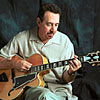
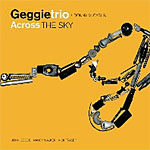



 Buy Now
Buy Now

